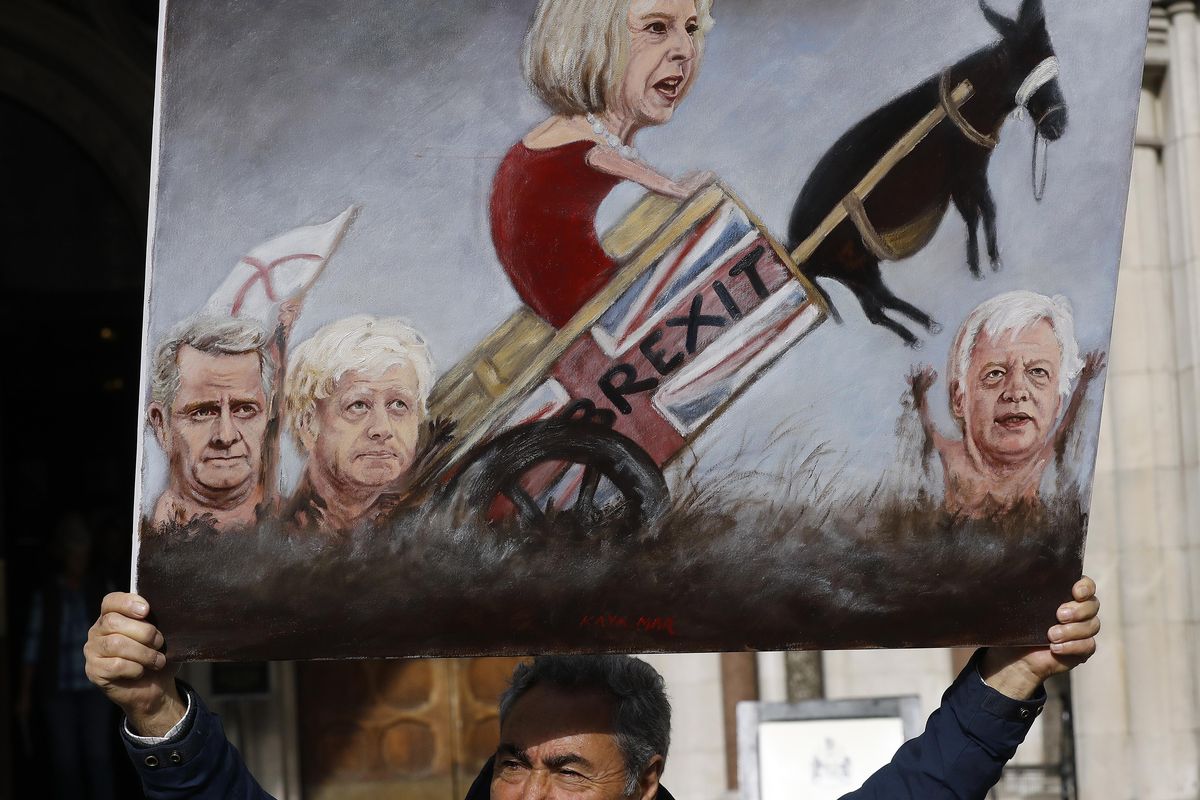Trump victory mirrored by nativist movement sweeping Europe

Fear of other races and cultures, a political force as old as the mobs that murdered Catholics and lynched blacks in 19th-century America, has emerged anew – and not only in this year’s campaign rhetoric about Mexicans and Islam.
Across the Atlantic in Europe, fear has become a mature and increasingly powerful motivator, putting nativists – those who favor a country’s racial majority and view newcomers with hostility – into office and shattering the establishment.
Even a decade ago in Europe, nativism might have seemed out of character: World War II ended the Nazi campaign for an Aryan “master race” and the genocide of Jews. Western Europe then became a bastion of progressive policies that guarantee workers’ jobs, provide months of paid leave for new parents, and publicly fund universal higher education and medical care. For a generation, white supremacists and neo-Nazi groups simmered at the outer fringe of European politics.
But with recent waves of immigration and occasional outbreaks of terrorist bloodshed, that has changed. British voters sent a shock wave across the continent this year when they embraced nativist fears and approved an exit from the Europe Union.
The architect of the Brexit campaign, British politician Nigel Farage, campaigned for Donald Trump. At an Aug. 25 Trump rally in Jackson, Mississippi, Farage gave a speech about his voters’ decision to “take back control of their borders.”
Similarly, Trump has a fan in Hungarian Prime Minister Viktor Orban, who described as “a poison” the flood of asylum-seeking families from troubled countries of the Middle East and Africa. “Hungary does not need a single migrant for the economy to work, or the population to sustain itself, or for the country to have a future,” Orban declared in July.
The New York Times this year published a roundup of Europe’s rising nativism: In Austria, Denmark, Finland, France, Hungary, Poland and Switzerland, right-wing political parties that range in message from populism to fascism have elected growing numbers to national legislative bodies.
Unlike the United States, dominated by two political parties, European politics involves multiple parties that must form coalitions in order to seize a governing majority. These days, Europe’s conservative coalitions include the nativists.
The racial fears these groups embody are nothing new either in Europe or in the United States, according to political scientist Cornell Clayton, director of Washington State University’s Thomas S. Foley Institute of Public Policy and Public Service.
Class resentment, conspiracy theories and fear of groups from outside the majority have a “rich history” both here and abroad, Clayton said.
Even George Washington got caught up briefly in the politics of conspiracy and fear. In the heat of one campaign, Clayton said, Washington wrote against the Illuminati, a secretive Bavarian society believed to oppose the influence of religion.
In 1844, the Protestant “Know-Nothing” party railed against Irish and Italian immigration, inspiring a Philadelphia mob to burn Catholic homes and churches, killing 14 people and injuring 50.
At the 19th century’s end, the populist firebrand and presidential candidate William Jennings Bryan argued that the nation’s rich elites were conspiring to steal the jobs of hardworking white Americans and give them to cheaper labor from the ranks of European immigrants and recently liberated slaves. Inflamed Americans responded with mobs and lynchings.
Trump’s campaign, Clayton said, preached a refrain similar to Bryan’s. It was an appeal, he said, “to working-class voters, who feel they are on the short end of what is taking place in the economy. You can heighten these appeals by tingeing them with racial or ethnic elements. It’s easy to identify certain racial or ethnic groups and make them scapegoats.”
These arguments play well in the United States and Europe, Clayton said, with people whose old-economy skills leave them ill-equipped for a global economy founded on advanced technology and trade. In fact, assembly lines once located overseas have been returning to the United States to be closer to U.S. consumers – but the plants are filled with more robots than humans. And humans who maintain those robots need high-technology skills.
A weakness of this year’s presidential campaign, Clayton said, was a shortage of candid conversation about how to address the legitimate concerns of poorly educated manual laborers; they’ve seen local factories close with nothing but a minimum-wage retail job to match their skills and precious little to supersede their fear.
“Fear is a very powerful motivating force,” Clayton said. “Much more powerful than, say, hope.”